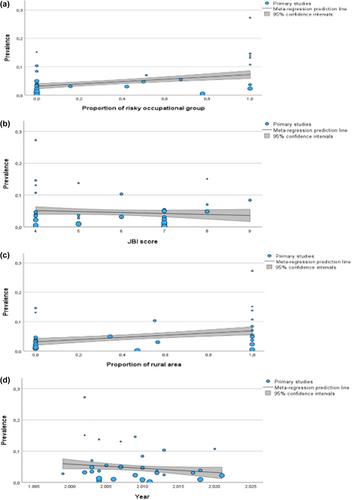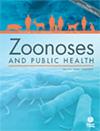Brucellosis remains a common zoonotic disease, in developing countries, as well as in Turkey where it is endemic, underdiagnosed, and underreported. The aim of this meta-analysis was to provide a comprehensive estimate of seroprevalence with a large sample size, covering all regions of Turkey, including both grey literature and published studies.
A systematic search was performed in MEDLINE (via PubMed), TürkMedline (National Health Sciences-Periodicals Database), and YÖKSİS database (Higher Education Council Information System) until May 5th, 2023. The quality of the studies was evaluated independently using Joanna Briggs Institute (JBI) critical assessment tool for prevalence studies. A random-effects model (DerSimion and Laird) was utilized to estimate the overall pooled prevalence. A sensitivity analysis was performed, excluding studies with a high risk of bias. The subgroup analyses and meta-regression were conducted to explore sources of heterogeneity. Egger test and funnel plot were used to assess publication bias. The meta-analysis included 30 studies in total published between 1999 and 2021 with 51,560 individuals. In Turkey, the pooled seroprevalence of human brucellosis was estimated to be 4.5% (95% confidence interval [CI]: 3.8%–5.3%). According to the subgroup analysis, a higher seroprevalence was found in rural areas (8.0%, 95% CI: 5.4%–10.7%), high-risk occupational groups (9.9%, 95% CI: 5.3%–14.6%), and the Central East Anatolia Region (13%, 95% CI: 3.2%–22.8%). The meta-regression analysis identified living in rural areas and certain geographic regions as significant risk factors associated with higher seroprevalence.
This meta-analysis revealed a significant burden of human brucellosis in Turkey. The findings highlight the need for public health measures and targeted interventions to reduce the burden of this zoonotic disease, especially in rural areas, high-risk occupational groups, and the East Anatolia Region.



